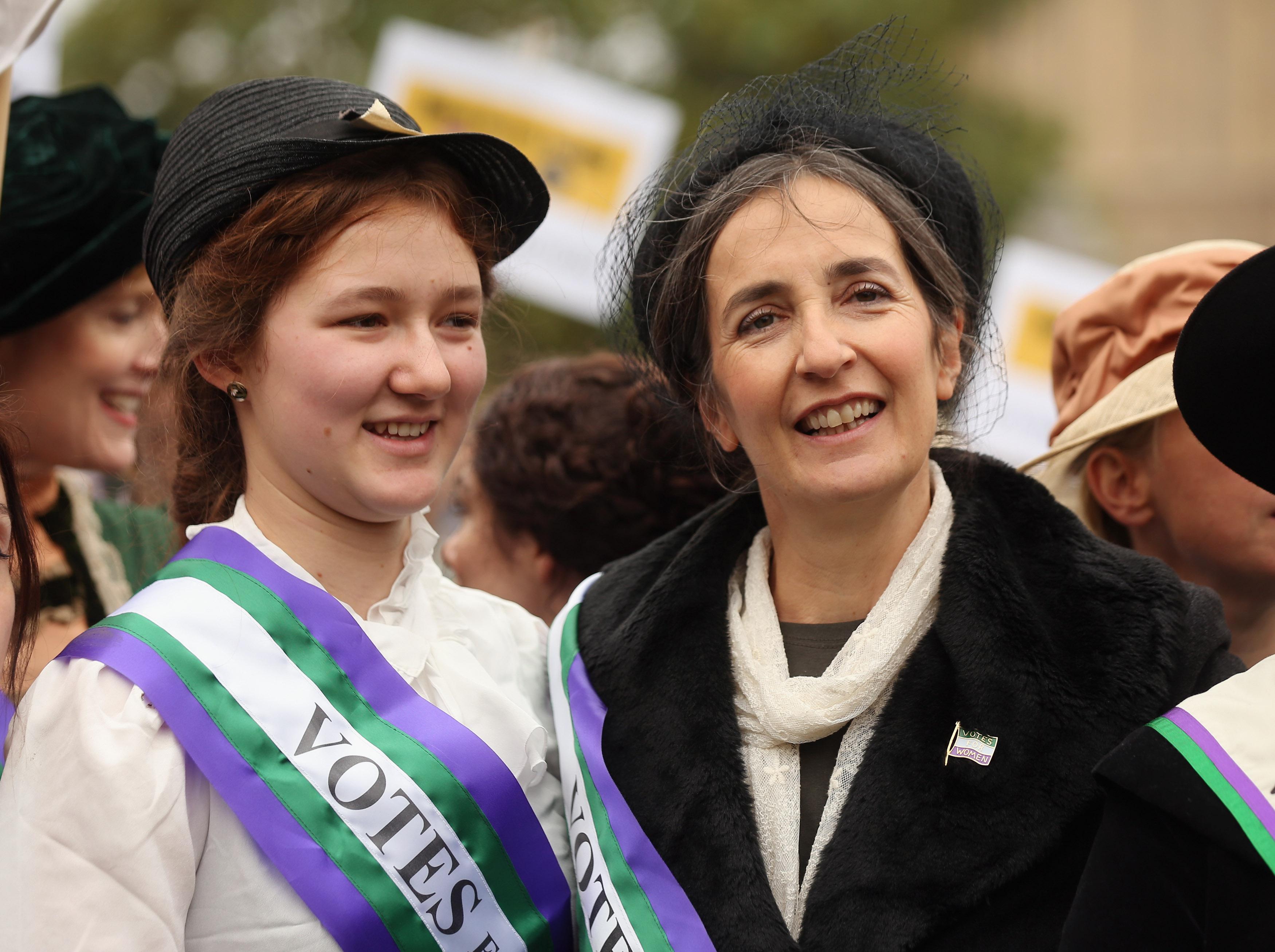Last week, Choire Sicha of the Awl delighted the Internet with his discovery that prominent publications have been declaring feminism a failure to get page views long, long before page views were even a thing. Nowadays, the claim is that feminism, with its focus on equality in the workplace and the home, has failed because stubborn, ordinary women are too interested in staying home and baking bread to care about silly things like chore charts and paychecks. In the 1930s, however, the claim was that the first wave of feminism—the suffrage movement—failed because stubborn, ordinary women were too interested in decorating hats and making sandwiches to care about politics.
But, at least so the average woman thinks, the governing of the nation is a more serious business than writing novels, posing for pictures, putting feathers on hats or lettuce between sandwiches. And this more serious business, she feels, had best be left in the hands of men.
This quote is from a 1939 piece by Grace Adams for the North American Review titled “Women Don’t Like Themselves: Why Women Refuse to Be Led By Other Women.”* It’s an examination of why women didn’t vote themselves into office en masse after getting the vote—and its arguments have been eroded by the passage of time and the rise of political science. Really, the article is just a very early version of a favorite anti-feminist argument: that feminists, being silly bubbleheads like all the other ladies, have worked day and night to push for equality only to find out that women don’t want it! Oh, the hubris of the female mind!
Nowadays, the claim that women are held back by their own unwillingness to embrace equality (never sexism) is used to justify the lack of women in science and engineering. Back then, it was used to justify women’s absence from the halls of power.
When in 1920 the men of the nation granted to their wives and sweethearts and aunts and nieces the right not only to vote but to hold public office, they proved as conclusively as possible that they considered them capable of holding such office. But what have the women themselves done with this right?
To date they have done exactly nothing. For all the good they accomplished, Elizabeth Cady Stanton and Carrie Chapman Catt and all the grim old girls who crusaded so righteously for woman’s political equality might just as well have stayed at home and raised babies or turnip seeds. Their raucous campaigns never got them nor their fellow club members anywhere.
Now, the argument is made that women aren’t discriminated against in the workplace: It’s only because of women’s choices that things like the pay gap exist. Adams plays the same card, asserting that men in fact wish women to be their complete equals. Women themselves are the ones who stop that from happening.
It was men, not women, who backed and encouraged Amelia Earhart’s solo flights across two oceans. It was men, again, who promoted Dr. Alice Hamilton to an exalted position in the medical faculty of Harvard University, and Dr. Florence Sabin to an even higher place in the Rockefeller Institute … After these women had won their honors, their sisters and girl friends applauded them lustily, but they gave them precious little help when they needed that help most urgently.
Adams neatly ignores the fact that feminists had to petition these generous men in power for nearly a century before they actually caved and gave women the vote. Surely she’d have much to discuss with the modern people claiming sexism is a thing of the past—and in a sense, she even proves them right. Too bad it’s also a thing of the present, and probably the future, too, until such ridiculous arguments are finally retired.
Correction, April 1, 2013: This article originally stated that Grace Adams’ essay was published in the Atlantic. It was published in the North American Review.
